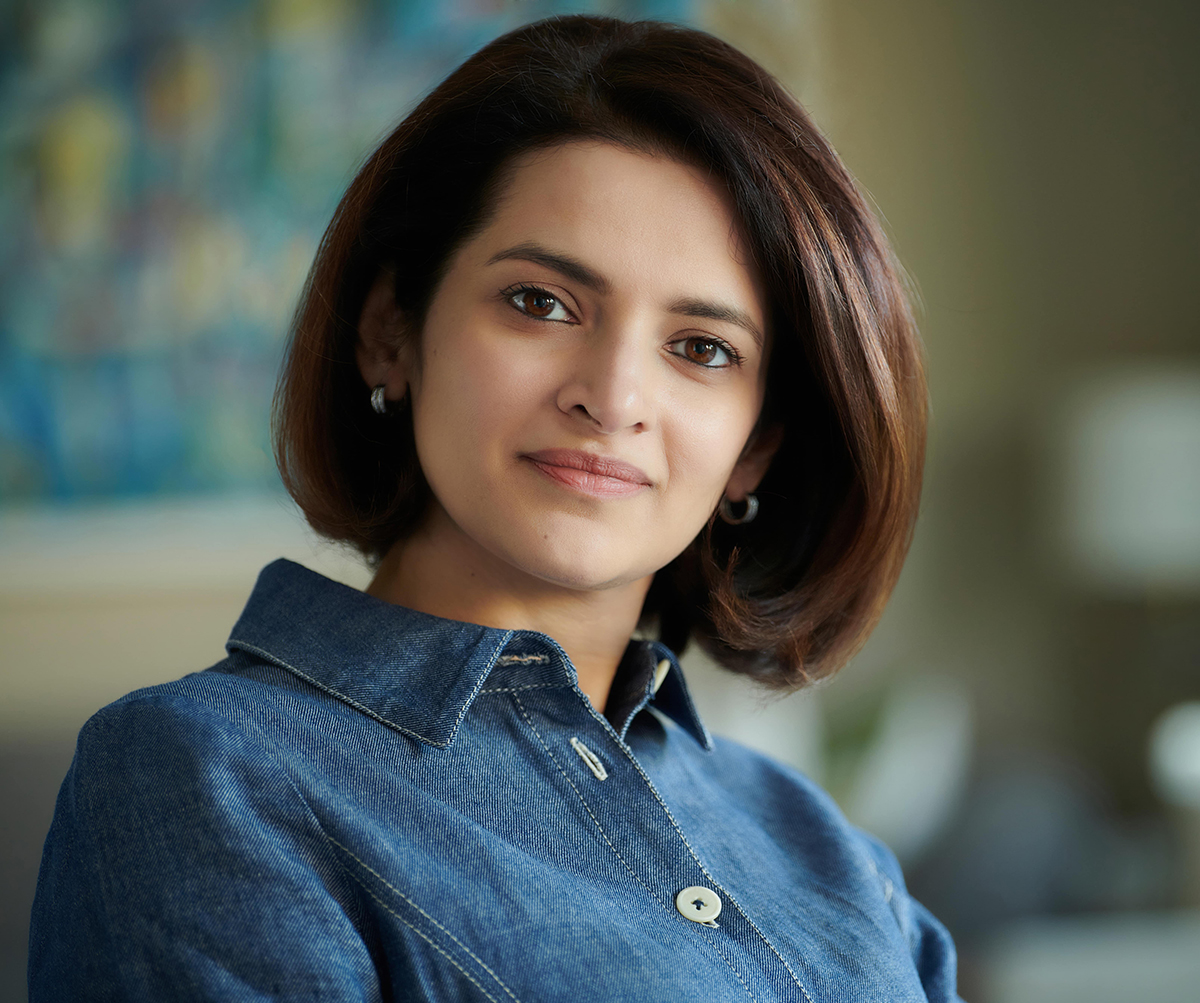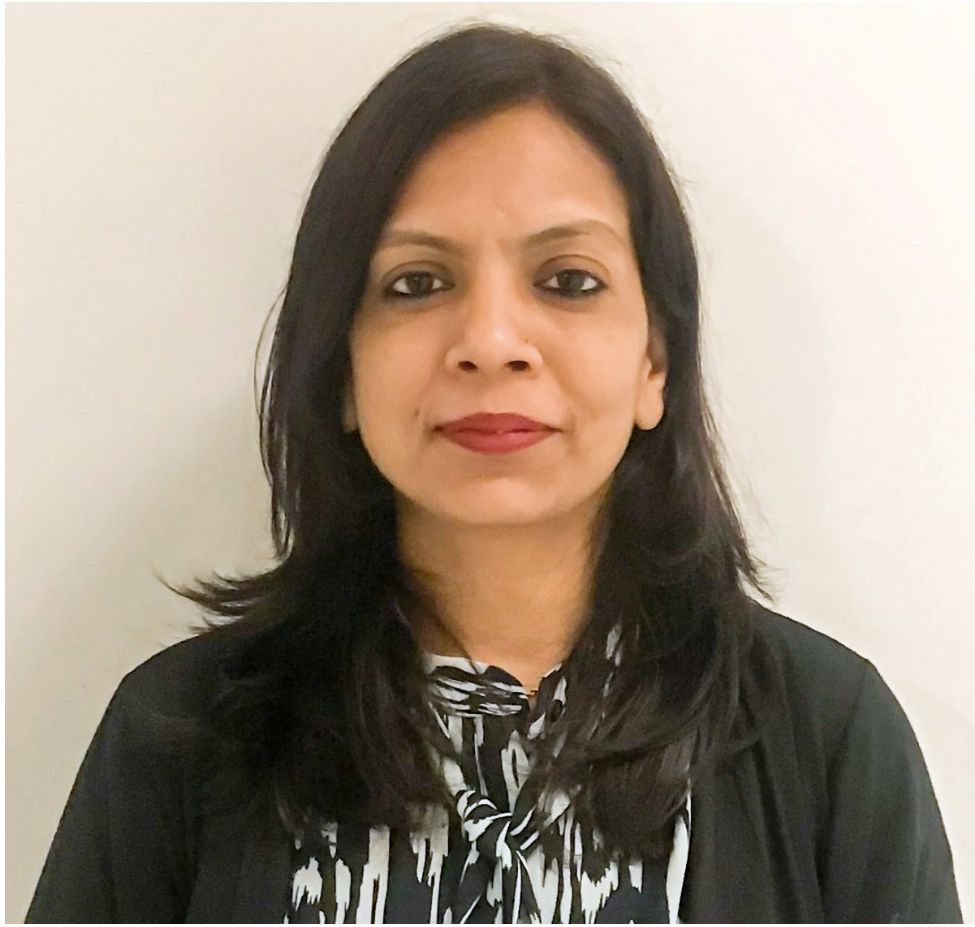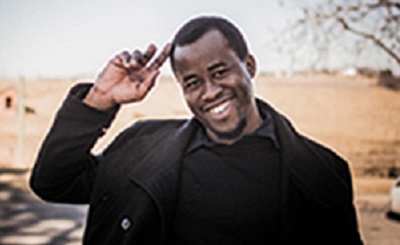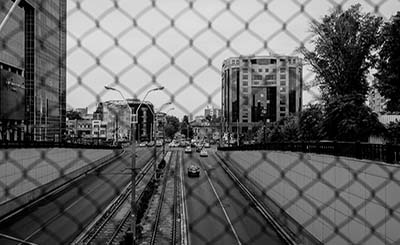
Shivani Sibal, author of Equations. Photo courtesy of HarperCollins India
Sikand House in Delhi, where the novel’s two protagonists grow up, is a metaphor for India, and the events in their lives symbolise the change around us
Shivani Sibal’s first novel, Equations (HarperCollins India), is a deft examination of class through the prism of two families, their scions to be more precise. It foregrounds their aspirations, their access to power and privilege, and their reversal of fortunes. Set in the Delhi of the 1980s, it delves into the dynamics of class, aspiration, and social change. Excerpts from an interview:
How did you arrive at the story of Equations? How long did it travel with you before it took the shape of the novel?
Growing up in Delhi in the 1980’s, children used play on the colony streets every evening, unsupervised by adults, told to return when the street lights came on. It was a very normal thing back then, spontaneous play with whoever was around, which doesn’t really happen now, who young children interact with is curated to a large extent by their parents. I wanted to write a novel around it, a tale of two friends separated by class, for over a decade, but it was just a formless idea. You accurately ask how long the story travelled with me, because it was in the interim decade between the idea and the execution that I saw, learnt, and absorbed a lot of what I wrote about. I changed as a person, from my twenties to my thirties, as one does, and that affected my writing immensely.
Did you set out to write about the ramifications of social inequality and the changing nature of the poor-rich divide in modern India or want to question the very notion and hierarchy of class? Do you see the novel challenging the inherently deep-rooted and widely-held stratification of the society into bourgeoisie and proletariat and blurring the straitjacketed lines between the two?
Sikand House, where the two protagonists grow up, was to me, a metaphor for India, and the changes around us. I wrote what I saw, but tried not to put any obvious tags on it. My intention was that a reader at the very least enjoys the book, and takes away whatever ideas resonate with them.
Did you consciously work on exploring the connections between class, caste, and politics, and the constantly changing and fading lines that define them — a change that became conspicuous in the post-liberalisation India of the 1990s?
In a word: Yes. The decade between when I first thought of writing this book, and when I actually got down to it, so much changed so quickly and reflected in the plot of Equations. What seemed impossible in 2006 seemed plausible in 2021.
Aahan Sikand and Rajesh Kumar are divided by the invisible wall of wealth, power, class and hierarchy. Did you draw on incidents or families known to you? Do you see this divide getting more accentuated in the new India, where the job creation is not in sync with the rise in the number of the aspirational class?
No, I did not draw on any specific incidents or people. Equations is a short novel, and I felt that it would be a bit lazy to regurgitate things I have seen and people that I have met, not to mention a bit unfair to those folks! I tried, rather, to keep the characters somewhat generic, where most readers can identify with them, know someone like that in their own orbit.
I think the divide that you refer to has always been there but now with social media, it is clearly visible, for all to see. I personally disagree with the term “aspirational class”. Everyone, in my view, can, should, and does endeavour to improve their lot.
The novel is divided into two parts; the first revolves around those who have a right to wealth, the second around those who figure at the bottom of the hierarchy. How important to you was this structure? Also, did you want to look at the change in the two families' circumstances through similar parameters, namely class, education, marriage, and politics?
Equations begins from the very end, in that the opening scene is a consequence of the closing one. The structure was more to give the story a logical beginning, middle, and end, not intending to place anyone before or after. I tried to paint the contrast between the two families not by just what they had, but by what they felt they deserved, what they were content having.
The novel has a very interesting cast of characters. The members of Aahan’s and Rajesh’s families, including their wives and parents, are drawn with care and empathy. Did you have to work a lot on these characters to make them at once credible and nuanced? How did you work on the elements of humour?
A lot of the novel is written in the third-person perspective, the fly-on-the-wall perspective. A large part of the story is set in the 1980s, and my age at the time was in the single digits. Our lives then were not chronicled with the terrifying frequency that they are now, and so those parts are written entirely from memory. So I would write in an almost trance-like state, when I was in the rooms that my memory inhabits of the time, with these fictional characters, observing their lives and writing them out. As for the humour, that is all my personal brand of it.
Do you think the romantic sub-plot gives the disparate conditions of the two families, and the parallel tracks of their stories, a more poignant focus?
The relative powerlessness of most of the women in the story is a separate track altogether. I specifically worked along those lines to highlight the everyday battles with patriarchy that all women face.
The struggle of Rajesh Kumar to become powerful and wealthy, to break the class hierarchy, is an act of metamorphosis in the pursuit of occupational success and upward mobility. Do you see him in some kind of conversation with Balram Halwai in Aravind Adiga’s The White Tiger?
I must confess that I haven’t read The White Tiger so I can’t comment on that. I intended for Rajesh Kumar to be a happy boy and man, secure in the love of his parents, and hope he comes across like that.
You are born into a family of very accomplished women writers: your grandmother Neerja Pant and your mom Namita Gokhale. Could you share some growing-up memories? Do you think their influence has, in some way, shaped you as a writer? Has your worldview been influenced by their writing?
My grandmother, who raised me, is the greatest single influence on my personality, on who I am. I was in my late 30s, and expecting a child when I wrote the bulk of Equations. When I wondered whether it was the right timing, I thought about my grandmother, who learnt Bharatanatyam at the age of 53, with no prior training in any kind of dance form. I vividly remember accompanying her for her arangetram. She taught me that the time that you take action is the right time. As for my mother, she gave me some invaluable practical advice which helped me finish this book: to write at least 200 words a day, not to make time into an excuse not to write.
It’s often said that writing throws up new insights about the self and society, sometimes making us rediscover ourselves. Could you talk about how the act of writing your debut novel has been for you?
A leading publisher once told me that a curious thing about writers is that they hate writing. I think what that meant is that the act of writing makes you confront yourself in a painful yet hopefully fulfilling way. It is a great feeling to finish a novel to have others appreciate it. The idea that characters who are exclusively a creation of your imagination now inhabit the mind space of other people is very satisfying. I find myself clearer on my own opinion about many things having written this novel.
As a Delhi person, what do you like most about the city and what are the places you frequent?
My relationship with Delhi is like one would have with a dysfunctional sibling. You are troubled by it, yet you love it so deeply that you cannot imagine life without it. I live close to the Lodhi Gardens, and my children and I spend a lot of time there. I love Midland Book Shop, where I have bought books all my life, and Aurobindo Market where it is situated, which is close to my Nani’s home.
Who have been your literary influences? Are there some specific writers you had to turn to while you were working on Equations?
Growing up, my parents denied me many things, but we were allowed to buy a book every day. This is in the 1980s and 1990s, a different time when information and learning was not as freely accessible to everyone as it is today, and I think that one policy served me well my entire life. Equations is written entirely from my own memories, with very little research.
How do you look at Indian writing in English today?
I like to approach English as an Indian language in this context. I have many passages in my book in colloquial Hindi and I did not translate them into English. It just seemed very clunky in translation, so I left them in their original form, as my readers are Indians, who are likely to follow it, or at least the gist of it.
What are you currently working on?
My children have been at home 24x7, for the past two years – it is very difficult to think, let alone write! With schools opening up now, I hope to start another novel, around the themes of the cult of modern, urban motherhood, so I guess this period could be called one of research.
More from The Byword
Comments
*Comments will be moderated











